Facing domestic battery charges is a serious situation, especially when your ex is the one pressing the charges. You might be wondering if they have the power to drop the charges once they’re filed. This guide will walk you through the complexities surrounding such charges and the role of the accuser in the process.
Can My Ex Drop Domestic Battery Charges Against Me?
This guide explains the following:
- The Role of the Prosecutor in Domestic Battery Cases
- Understanding the Victim’s Influence
- The Process of Dropping Charges
- Legal Considerations and Defense Strategies
- Seeking Professional Legal Guidance
Here’s a closer look at each.
The Role of the Prosecutor in Domestic Battery Cases
In domestic battery cases within Illinois, the prosecutor plays a pivotal role. Once charges are filed, it’s the prosecutor’s responsibility to decide whether to move forward with the case. This decision is based on the evidence available, not the victim’s wishes. Even if the person who initially brought the charges, such as an ex-partner, wants to drop them, the prosecutor may continue if they believe there’s enough evidence to potentially secure a conviction.
Understanding the Victim’s Influence
Although the victim cannot directly drop the charges, their willingness to participate in the prosecution can affect the case’s trajectory. If they indicate they no longer wish to pursue the matter, your defense attorney can incorporate this into your defense strategy. This could involve highlighting the victim’s lack of support for the prosecution’s case, which might sway the prosecutor to reconsider the strength of their position.
The Process of Dropping Charges
The process for dropping charges in a domestic battery case is complex. The victim cannot simply retract their complaint to halt the proceedings. Instead, they must convey their desire to the prosecutor, who will then weigh this against the evidence, the potential danger to the victim, and the broader implications for community safety and the seriousness with which domestic violence is treated.
Legal Considerations and Defense Strategies
Your defense attorney will conduct a thorough examination of the case’s details. This includes a critical assessment of the evidence presented, the credibility of the individuals involved, and the context of the allegations. They will also scrutinize any changes in the accuser’s story, such as a recantation, to build a robust defense strategy that aligns with your best interests.
Seeking Professional Legal Guidance
Dealing with domestic battery charges is a situation that demands the insight and expertise of an experienced defense attorney. Such a professional will guide you through each step of the legal process, represent your interests in negotiations and in court, and strive to achieve the most favorable resolution possible. Their knowledge of the law and the local legal system is indispensable in these circumstances.
FAQ About Domestic Battery Charges
Check out these commonly asked questions about domestic battery charges. If you don’t see the answers here, please call our office and we’ll get you the information you need.
Can My Ex Refuse to Testify Against Me?
If your ex decides they do not want to testify against you in a domestic battery case, they may express this wish to the prosecution or the court. However, the court has the authority to issue a subpoena, which legally obligates them to testify. If they still refuse to testify after being subpoenaed, they could face legal consequences, such as being held in contempt of court. An ex’s reluctance to testify can affect the prosecution’s case, as their testimony may be crucial to proving the charges against you.
What Happens if My Ex Lies About Wanting to Drop the Charges?
If it’s discovered that your ex lied about their intention to drop the charges, this could lead to serious repercussions for them. Lying to a prosecutor or in court can result in charges of filing a false police report or perjury. These are serious offenses that can carry penalties including fines and imprisonment. Additionally, this kind of dishonesty can undermine the prosecution’s case and could be used by your defense attorney to question the credibility of the accuser’s allegations.
How Can My Attorney Use My Ex’s Desire to Drop the Charges in My Defense?
Your attorney can use your ex’s desire to drop the charges as a part of your defense strategy. They can communicate this to the prosecutor, who may reconsider the strength of the case without the cooperation of the key witness. If the prosecutor believes that the case will be difficult to prove without the accuser’s testimony, they may be more willing to negotiate a plea deal or even dismiss the charges. However, the final decision rests with the prosecutor and the court.
What if My Ex Has a Change of Heart After Filing Charges?
If your ex changes their mind after filing charges, this new development can be incorporated into your defense strategy. Your attorney can present this change of heart to the prosecutor and the court as a reason to reconsider the charges. While this does not automatically mean the charges will be dropped, it can influence the proceedings, especially if it suggests that the initial allegations may have been made in haste or without full consideration of their implications.
Is It Possible to Have No Contact Orders Lifted if My Ex Wants to Drop the Charges?
Lifting a no-contact order is a decision that only the court can make. If your ex wishes to have the no-contact order lifted, your attorney can file a motion to modify the conditions of the order. The judge will consider various factors, including the wishes of your ex, the nature of the alleged offense, your criminal history, and any potential risk to the accuser. The judge’s primary concern is the safety of all parties involved, so the decision will be made with that in mind.
Your attorney’s role is to provide you with a defense that takes into account all the nuances of your case, including the wishes of your ex. It’s essential to have an experienced legal professional by your side who understands the intricacies of domestic battery charges and can advise you on the best course of action.
Do You Need to Talk to an Attorney About Domestic Battery Defense?
If you need to talk to a domestic battery defense attorney in Illinois, we’re here to help. Call us at 847-920-4540 now – we’ll be happy to give you a free consultation and talk to you about your options.

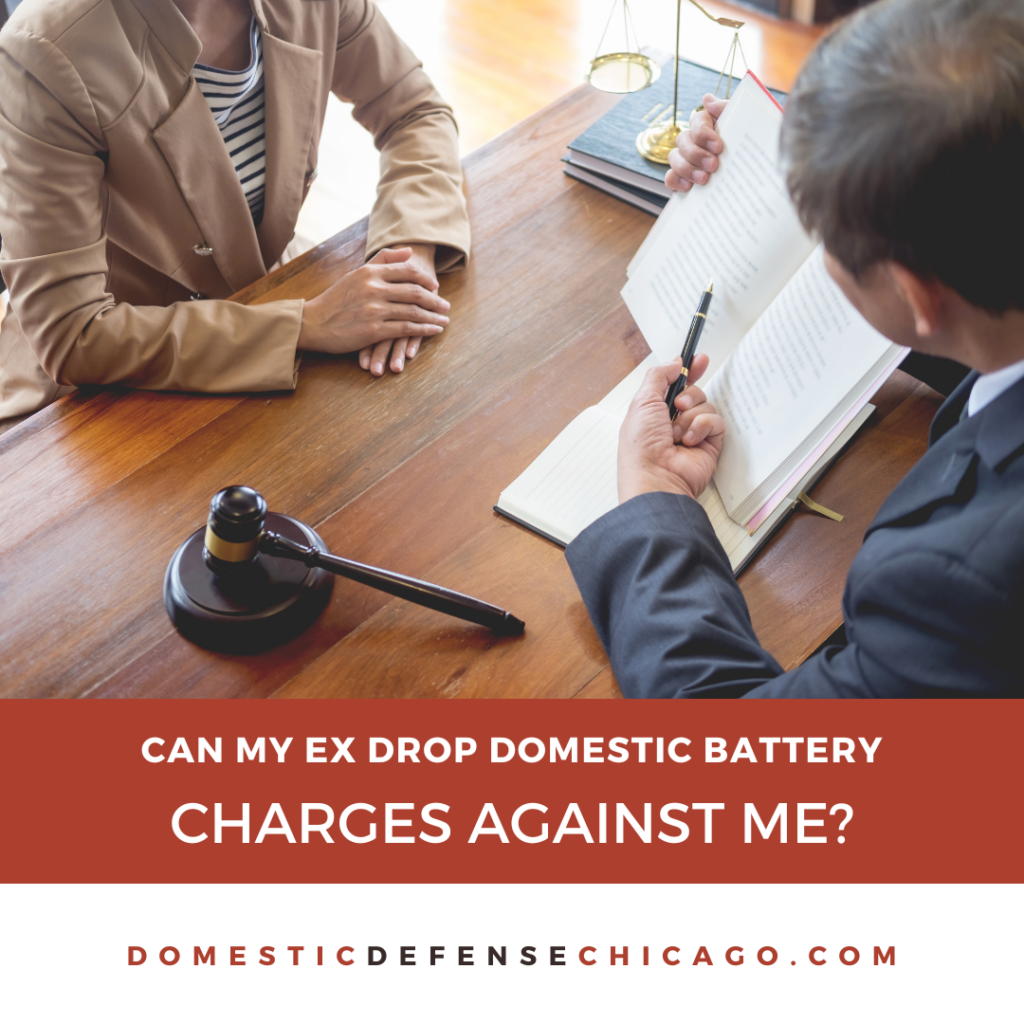
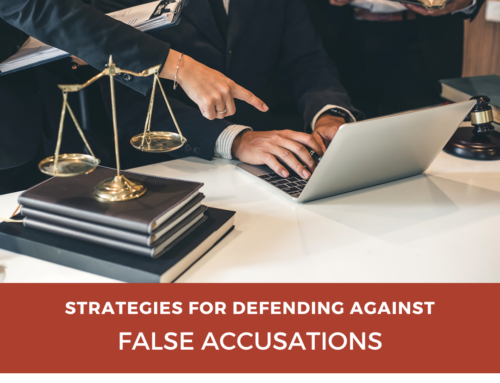

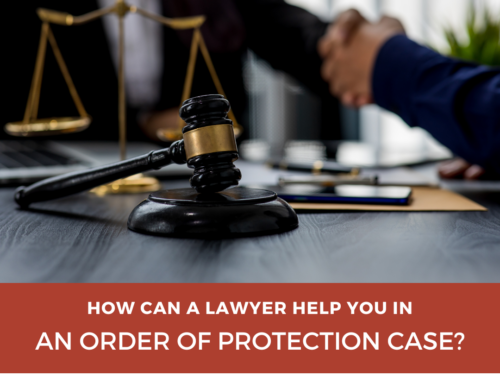
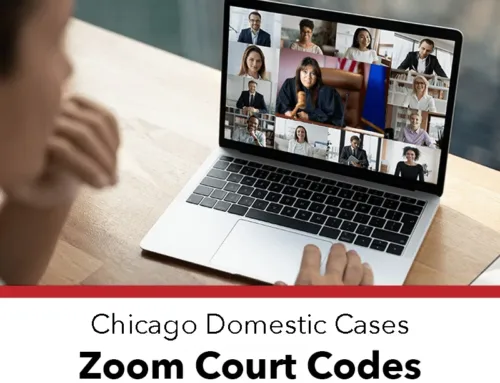
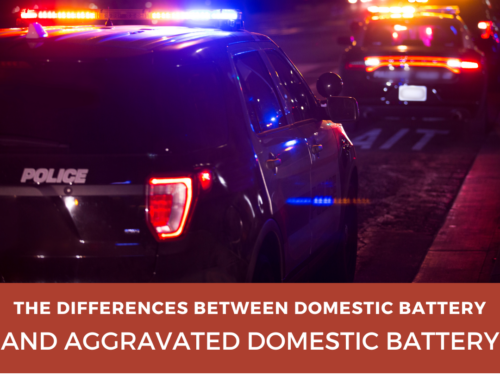
Leave A Comment
You must be logged in to post a comment.